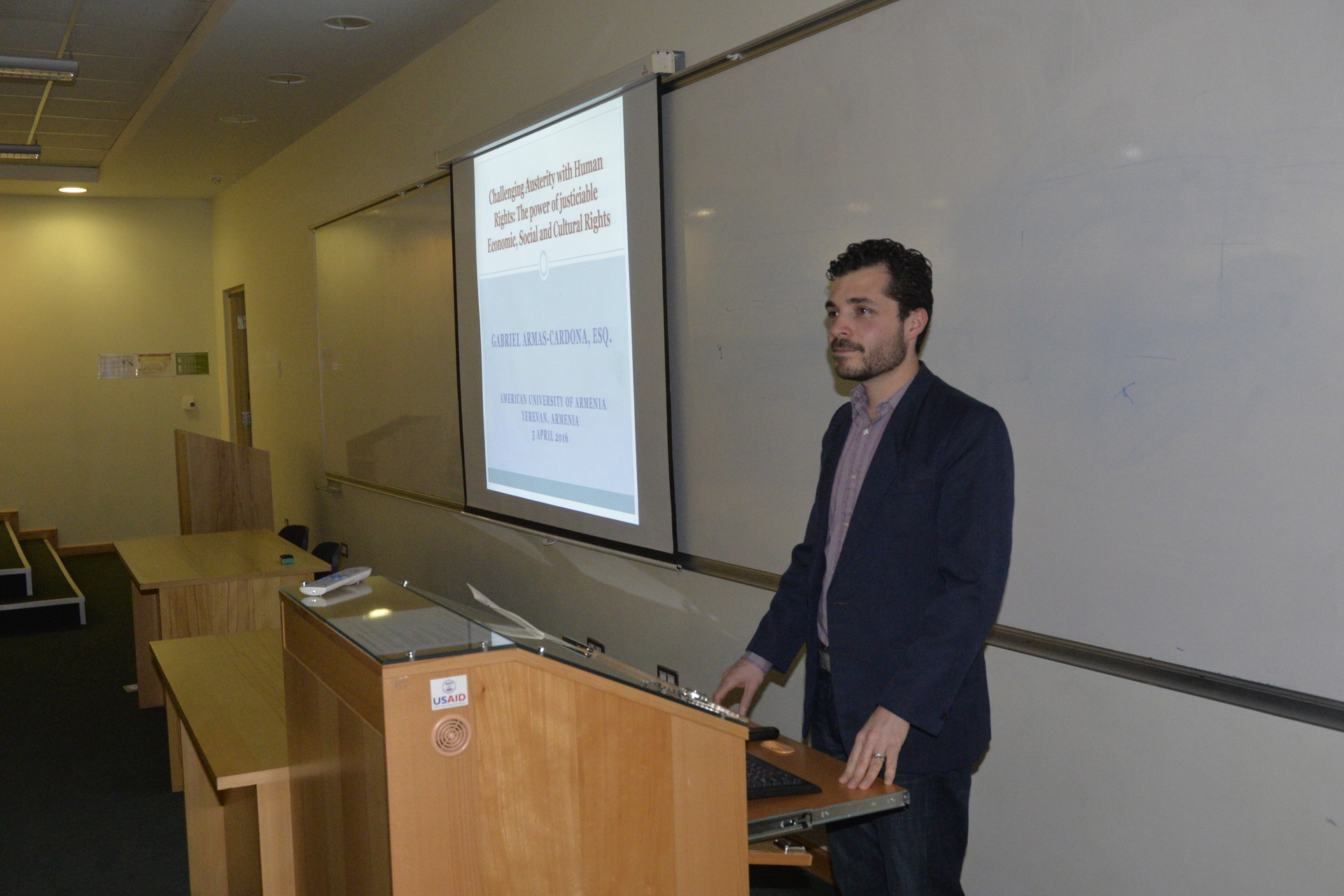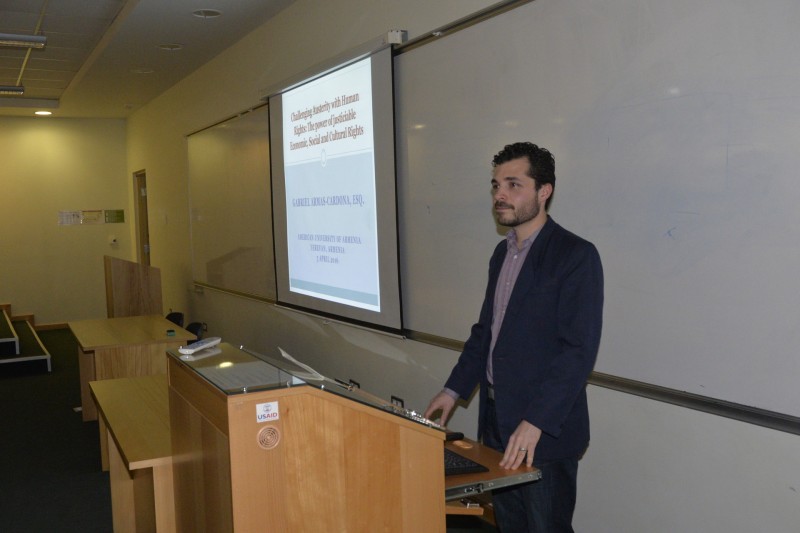
Challenging Austerity with Human Rights
2 min readYEREVAN, Armenia – On April 5th, the College of Humanities & Social Sciences hosted a public lecture led by Human Rights Lawyer and graduate from New York University School of Law Gabriel Armas-Cardona.
The past few decades have seen a transformation of Economic, Social and Cultural (ESC) rights into powerful tools of social change. A number of jurisdictions officially allow individuals to bring claims of economic, social and cultural (ESC) rights violations to court. Courts have used these rights to ensure the provision of basic services like access to water or basic healthcare, resulting in real gains for the poor. These legal tools not only provide courts with new rights to protect but also new methods of review. The traditional understanding of rights is that they limit what States are able to do, and the rights impose negative obligations. Negative obligations impose minimal limits on policy making. In contrast, ESC rights often include positive obligations, where the State must conduct some action to comply with its obligation. To effectively enforce ESC rights means courts must look at and evaluate policy making.
Human rights advocates currently seek to use these new methods to demonstrate that European austerity measures resulted in human rights violations. Whether willingly or forced, many European states responded to the Great Recession with austerity measures. Governments slashed social programs, resulting in a range of social harms including decreased access to healthcare and education and increased rates of suicide. If the human rights advocates win, governments may be required to compensate victims and would need to carefully consider any future cut in social services, whether in times of crisis or not.
Gabriel Armas-Cardona has worked for the Human Rights Defender’s Office of Armenia and the Lawyers Collective of India under the United Nations Special Rapporteur on the right to health. His focus is on using international human rights law, particularly the right to health, to make positive change on the ground.
Founded in 1991, the American University of Armenia (AUA) is a private, independent university located in Yerevan, Armenia and affiliated with the University of California. AUA provides US-style education in Armenia and the region, offering high-quality, graduate and undergraduate studies, encouraging civic engagement, and promoting public service and democratic values.

